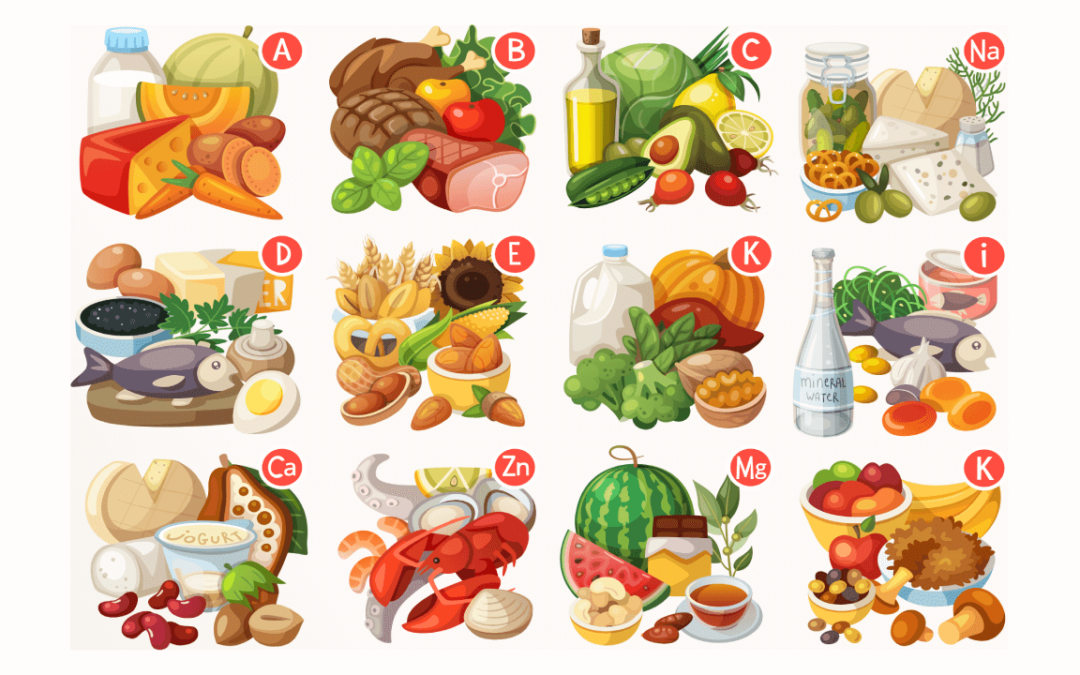Microminerals: The Tiny but Mighty Nutrients
Our bodies require a range of essential minerals to function properly, and microminerals are a crucial part of this group. These tiny nutrients play a significant role in various bodily functions, from maintaining healthy bones and teeth to supporting immune function and energy production.
What are Microminerals?
Microminerals are minerals that our bodies require in smaller quantities, typically less than 100 mg/day. These include:
– Manganese: Essential for enzyme function, wound healing, and bone health.
– Copper: Plays a crucial role in enzyme function, immune function, and connective tissue health.
– Iodine: Essential for thyroid hormone production and brain development.
– Chromium: Important for glucose and lipid metabolism.
– Molybdenum: Necessary for enzyme function and metabolism.
– Selenium: Acts as an antioxidant and supports immune function.
– Cobalt: Required for vitamin B12 synthesis.
– Fluoride: Essential for bone and tooth health.
Functions and Food Sources of Microminerals
Each micromineral has a unique set of functions and food sources:
Manganese
– Function: Co-factor in enzyme functions, wound healing, and bone health.
– Food sources: Legumes, grains, leafy vegetables, seeds.
– RDA: 2.3 mg/day.
Copper
– Function: Essential for enzyme function, immune function, and connective tissue health.
– Food sources: Oysters, whole grains, legumes, copper-rich water.
– RDA: 0.9 mg/day.
Iodine
– Function: Essential for thyroid hormone production and brain development.
– Food sources: Iodized table salt, eggs, seaweeds.
– RDA: 0.150 mg/day.
Chromium
– Function: Important for glucose and lipid metabolism.
– Food sources: Broccoli, grape juice, whole grain, meat products.
– RDA: 35 micrograms/day.
Molybdenum
– Function: Necessary for enzyme function and metabolism.
– Food sources: Legumes, whole grains, nuts.
– RDA: 45 micrograms/day.
Selenium
– Function: Acts as an antioxidant and supports immune function.
– Food sources: Seafoods, organ meats, grains, dairy products.
– RDA: 55 micrograms/day.
Cobalt
– Function: Required for vitamin B12 synthesis.
– Food sources: Meat, eggs.
– RDA: No established RDA.
Fluoride
– Function: Essential for bone and tooth health.
– Food sources: Toothpastes, mouth rinses, supplements.
– RDA: No established RDA.
Deficiency and Excess Symptoms
Deficiency and excess of microminerals can cause a range of symptoms:
– Manganese deficiency: Skeletal deformation, impaired wound healing.
– Copper deficiency: Low white blood cell count, impaired immune function.
– Iodine deficiency: Goiter, cretinism.
– Chromium deficiency: Impaired glucose tolerance, weight loss.
– Molybdenum deficiency: Rare, but can cause mental disturbances and coma.
– Selenium deficiency: Rare, but can cause Kashin-Beck disease.
– Cobalt deficiency: No established deficiency symptoms.
– Fluoride deficiency: Increased risk of tooth decay.
By understanding the importance of microminerals and their functions, we can take steps to ensure adequate intake through diet or supplements, maintaining optimal health and preventing deficiency-related disorders.
References
https://www.hemophiliafed.org/news-stories/2010/11/essential-nutrients-vitamins-minerals/
https://medlineplus.gov/minerals.html
https://www.dailymail.co.uk/femail/article-8204/Minerals-15.html
https://www.uofmhealth.org/health-library/ta3912
https://www.webmd.com/food-recipes/guide/vitamins-and-minerals-good-food-sources#1
https://en.wikipedia.org/wiki/Mineral_(nutrient)

